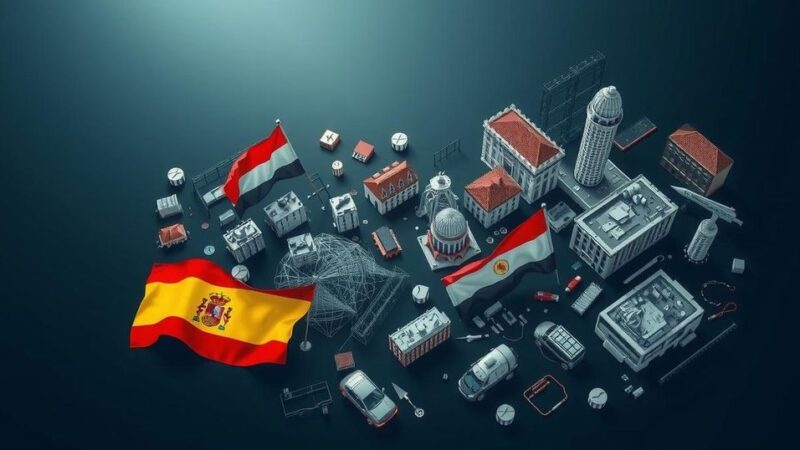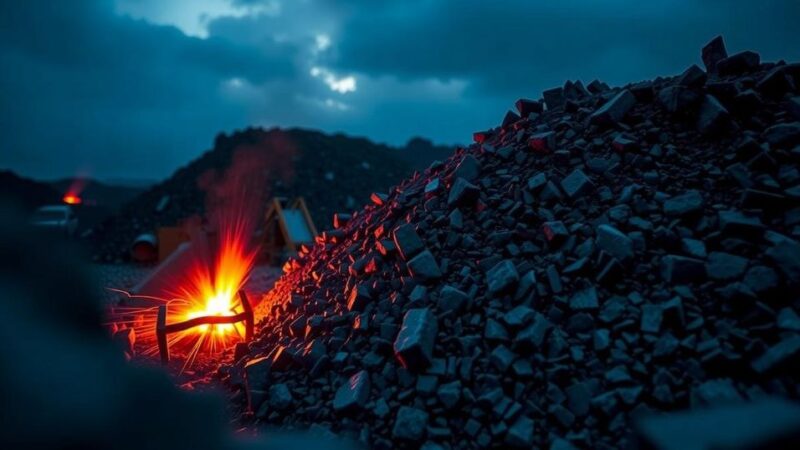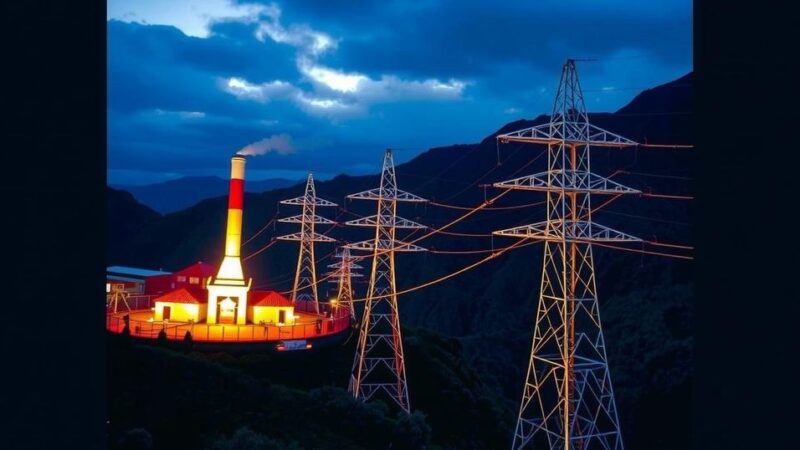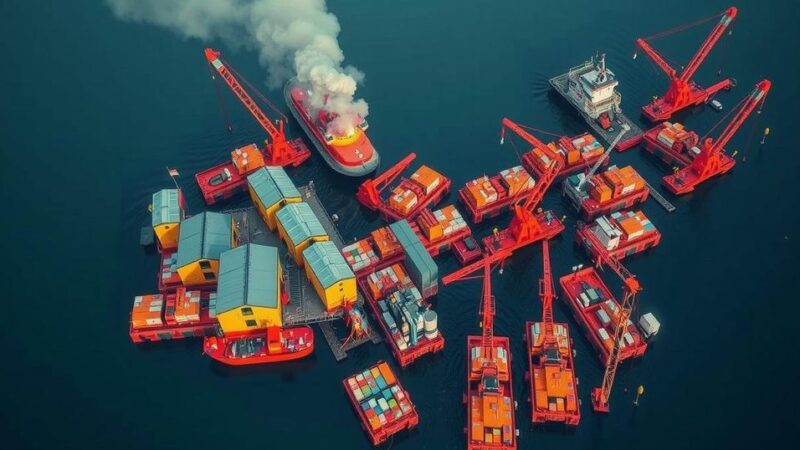Rebels in eastern DRC control the Rubaya coltan-mining region, generating approximately $300,000 monthly revenue from a production tax. This area contributes over 15% of global tantalum supply, fueling armed groups and exacerbating local civilian exploitation. The UN mission’s head has called for urgent intervention to address these escalating issues.
Rebels in the eastern Democratic Republic of Congo (DRC) have intensified their grip on the Rubaya coltan-mining region, enforcing a production tax that reportedly yields approximately $300,000 in monthly revenue. This alarming information was presented to the United Nations Security Council by Bintou Keita, the head of the UN mission in Congo, during a session held on Monday. The M23 movement, a Tutsi-led faction allegedly receiving support from Rwanda, captured the Rubaya area after violent confrontations in April. This region is significant as it is a source of minerals critical for the technology sector, specifically tantalum, which is extensively used in smartphones and computers. According to Ms. Keita, the Rubaya area is responsible for over 15% of the global tantalum supply, asserting Congo’s position as the world’s leading producer of this vital mineral, classified as critical by both the United States and the European Union. Ms. Keita expressed grave concerns regarding the situation, stating, “This generates an estimated $300,000 in revenue per month to the armed group. This is deeply concerning and needs to be stopped.” Furthermore, she indicated that the illicit trafficking of the DRC’s natural resources not only empowers armed groups but also exacerbates the exploitation of local communities, some of which have been reduced to conditions akin to de facto slavery, while hindering peace initiatives. The eastern region of the DRC has long been mired in conflict, particularly over land and resource control, and has seen a deterioration of conditions since the resurgence of the M23 rebellion in March 2022. The conflict has resulted in thousands of fatalities and displacements exceeding one million individuals. Keita emphasized the increasing militarization of armed factions as they become financially empowered through mining revenues. She suggested that unless substantial international sanctions are levied against the beneficiaries of this criminal trade, sustained peace would remain out of reach, perpetuating civilian suffering.
The Revolutionary Democratic Republic of Congo is currently grappling with significant instability, primarily in its eastern provinces, where various armed groups vie for control over rich mineral resources, including tantalum, a mineral crucial for the manufacturing of electronic components. The resurgence of the M23 movement has further complicated the situation, leading to renewed violence and suffering among civilian populations. The involvement of foreign players, such as Rwanda, has raised additional concerns regarding regional stability and the international community’s role in mediating the conflict and ensuring that minerals sourced from conflict zones do not end up in global supply chains.
In summary, the situation in the eastern Democratic Republic of Congo is marked by the exploitation of mineral resources by armed groups, which in turn generates substantial revenue that fuels ongoing conflict. The international community, particularly manufacturers relying on minerals from this region, has a critical role to play in addressing these issues. Addressing the illegal trade of Congolese minerals through the implementation of international sanctions is essential for the establishment of lasting peace and the protection of local populations.
Original Source: www.mining.com






